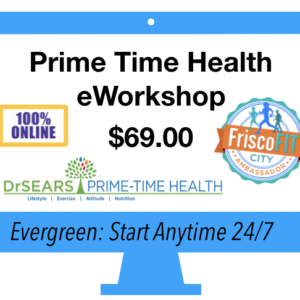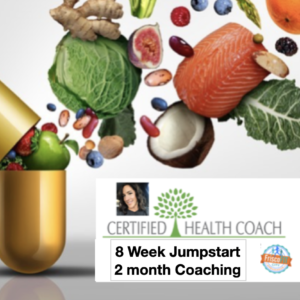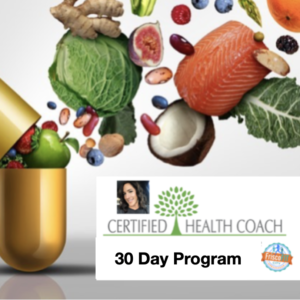Shop HERE: Gerryl Krilic NBHWC Fullscript Provider Account Link
Access to Pharmaceutical Grade Supplements 20% OFF MSRP are provided here for you and our clients as a Resource Only ( email submission required to access and view catalog)
Coach Note: As a Professional Non Physician Healthcare Provider and Board Certified Health and Wellness Coach, I do not sell and or promote any supplements as part of my coaching programs. I am not a Sales Rep or Brand Ambassador. Lifestyle medicine behaviors and skills are used as a first line treatment in prevention and wellness. The scientific evidence is clear, Whole body HEALTH does not come in pill form or from the millions of products that are marketed to consumers each and every day. Optimal Nutrition is best achieved though whole food nutrition and eating a wide variety of colorful phytonutrients from a variety of Whole Foods, fruits and vegetables. Supplements are not replacements for establishing a healthier pattern of eating.
6 tips about supplements you need to know:
Your doctor and pharmacist are the best people to advise you on supplements. Your Health coach is here to support your choices, mention important health points, and help you reach your personal goals. Supplements are not replacements for whole food nutrition.
If you use and are curious about dietary supplements, here are some things to keep in mind:
- Get the facts from reliable sources: Find out what the science says about specific vitamin and mineral supplements by checking these National Institutes of Health fact sheets.
- Supplements aren’t proven safe or effective before they are sold. Unlike foods and medicines, mass marketed supplements are not regulated by USDA.
- Don’t confuse ‘natural’ with ‘safe.’ Many natural things aren’t safe to eat. Even common herbs, such as comfrey and kava, can harm your liver. Also, the terms ‘standardized,’ ‘verified,’ and ‘certified’ on the packaging do not guarantee product safety, quality, or consistency.
- Be careful with combining. Supplements can keep medicines from working properly. Some supplements can cause dangerous interactions with prescription or over-the-counter medicines you take. Your doctor / pharmacist can advise you.
- Unknown ingredients are a safety risk. What’s on the label isn’t always what’s in the bottle. Some supplements contain hidden drugs and compounds. Be especially careful with supplements marketed for weight loss, sexual health, and athletic performance. If it sounds too good to be true, it probably is. Here are things to think about when looking at brands of supplements.
- Discuss with your doctor. Check with your doctor before starting any supplements. Mention any current use of pills, capsules, chews, powders, herbs, drinks, and bars.
Link How to Read a Supplement Label






